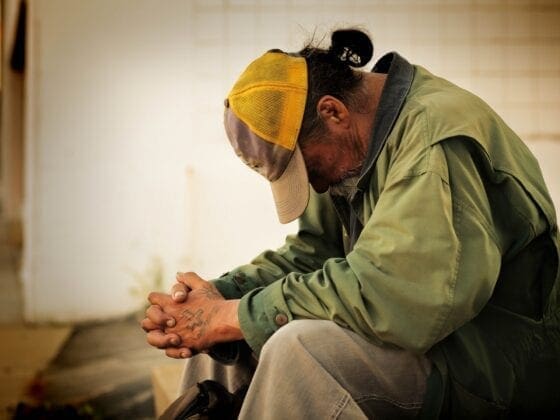
Talking about God’s Providence is always a bit complex. First, because it is difficult for many of us to understand this term and, second, because sometimes we do not realize how God acts in our lives and especially in the lives of the poor.
What is Providence? We can define it simply as the actions that God carries out to assist the human being. That is, all that God accomplishes to help the human being.
In the Old Testament, we clearly perceive God’s action through the great personalities, Abraham, Noah, Moses, the prophets. In the New Testament, we have God’s saving action through his own Son, Jesus Christ.
Today, how is this saving action manifested in human beings? One of the forms, which the Church recognizes, is through the sacraments, which are defined as a “visible action of an invisible reality.” That is why we divide them into three foci, allowing us to walk through life: the sacraments of initiation, healing, and service. They are actions that God has left for man to achieve his mission of growing in the spiritual life.
However, a phrase runs through all the Second Vatican Council’s teachings, which cannot fail to move us Vincentians. “Nothing that happens to man is indifferent to God.”
I believe that this is why the actions of Providence are manifested not only in these seven sacraments, but also continue to be manifested in the integrating action of the Church, when it is able to hear the cry of the poor and to sympathize with that cry. When we work at concrete actions for peace, justice, and equity; when we seek the changes necessary to promote a society close to God’s dream, that is building up his Kingdom.
Everything we do for our brothers and sisters is a manifestation of Providence in human life. We are called to be co-participants in God’s redemptive work. This does not consist only in seeking the spiritual good of all people, but also that each one’s stay on earth is a good experience, full of hope, of equity, and where we all have a dignified life. Let us enjoy the fruits of creation and let us all have access to a good education; where we can have work, decent housing, and where we all have what we need to eat and be clothed; where we can all express ourselves without fear and all can be more united as brothers and sisters.
The Church manifests Providence’s action in society. We cannot be indifferent to the pain of others. We cannot sin by omission. We cannot remain silent.
Our religious, ethical, and moral commitment should lead us not only to speak of God’s love in people’s lives, but also to act so that this love becomes effective in the lives of all human beings.
Saint Vincent de Paul, the great apostle of Charity and of the poor, acted in this way, without exception, but with preferential treatment for those most in need. He sought to help others by the promotion of the poor in their lives. He included the rich in this service. He helped in the formation of the clergy and the laity. He was inventive to infinity in order to show how God loves each one of us. From where we are, He wants us to work for our Christian perfection, but also for the salvation of all, integrating, to this end, all the aspects that touch our life.
Therefore, if we want to explain what Providence is in the lives of the poor, we must do so with the sweat of our brows and the strength of our arms, setting an example of how God manifests Himself in our own lives and thus how He manifests Himself in the lives of others.
God works day by day for the world’s salvation. We are to do the same.


The fifth virtue comes to mind: “Zeal for souls”. Its formulation contains a reference to something beyond this life. We are not perfectionists. We follow the lead of the Spirit. Certainly this means engaging on a very practical level and, since we focus on the poor, necessarily involves suffering since, by definition, the poor are always experiencing a lack of resources which will eventually affect us. But the goal is to do the will of the Father. I like very much the formulation of the definition of evangelization found at C. 11 which is in close proximity to C. 12 so that we do not lose our way.